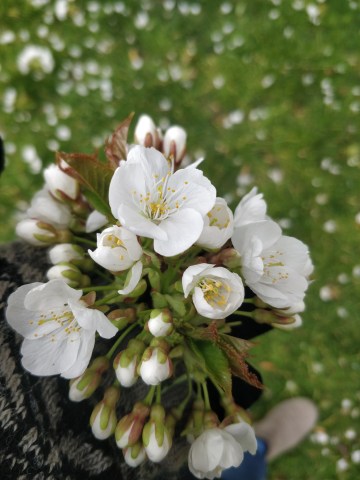So Much Editing 2020

It’s been a long pandemic. Have I mentioned that? It’s been a looonnnggg pandemic.
In April 2020, having had nothing to do, I finished writing Notes From The Burning Age, which I’d been working on since late 2019. (I don’t know if it’s been announced, but it’s on a website so hell! It’s a thing.) However, as I sat in my pyjamas eating biscuits and churning out text, my wonderful editor was simultaneously attempting to look after a family while working full time on a thousand books with all the schools shut, the economy in flux and a plague on. How she has held it all together at all even slightly is a gobsmacking mystery to me. Given 2020 and real life, Burning Age notes were slow to come, and so with nothing to do in May I started writing another thing. We’ll call it Top Secret Project 1. Over the next two months, trapped at home waiting for some semblance of the world to reboot, I scribbled every day on Top Secret Project 1, finishing in late summer.
This was then sent off to my afore-mentioned editor, and I sat around twiddling my thumbs for a few weeks. My chief occupation was answering a backlog of email dating from late 2016, after a bit of a glitch in them not being forwarded them from Orbit which is now, I believe, fixed! Apologies again to everyone who got an email four years late from me.
Just when I thought I was gonna go mad – there was really no DIY left to do at all ever, the weather was turning cold and it wasn’t like infection numbers were falling in the UK – I was approached about Super Classified Project 2, and with a somewhat reckless cry of “oh yes please nom nom nom!” I signed up. It was unlike anything I’d ever done before, and the people involved were – and are – awesome.
That was around October 2020. I did the first draft of Super Classified Project fairly speedily, sent it off… and then all the edits in the world ever at all arrived all at once.
First came my publisher’s notes on Burning Age. The big, broad-strokes edits. This doesn’t work, that doesn’t make sense etc.. I agreed with basically all of them; it’s always nice when that happens. Indeed, I was totally on board with doing more than was proposed and gender-flipping the main character, but no one else seemed to think it was a good idea and thus 120,000 words of pronoun-altering was blessedly avoided. I churned through it all, re-writing and moving stuff around, just in time to receive notes on Super Classified Project 2.
As I pondered those, prodding at an idea here, scrapping a bit of nonsense there, copy edits for Burning Age arrived. These were marked as urgent – once the machine of publishing production gets churning, it is unrelenting. Their prompted another line-by-line trawl through the novel a bare three or so weeks after I’d finished doing my most recent pass. No sooner was that finished and sent off, than notes came in on Top Secret Project 1 – again, broad stroke stuff about plot and character and pacing etc.. About two minutes later I received proofs for Burning Age, as well as more notes on Super Classified Project 2, meaning I found myself just before Christmas staring at not one, but three separate sets of editorials for three separate projects.
That was roughly when my brain fell out of my ears. I tried reading proofs for Burning Age… and quickly realised that every single sentence was the worst thing ever written by woman and nothing made any sense and the whole book was a dumpster fire. I then took some time off for Christmas, and in January 2021 came back to Burning Age proofs to find, with the wisdom of having stepped away, that it was fine. It was not in fact a desolate tome of a text, hurrah!
I ploughed through proofs, then did two more drafts of Super Classified Project 2, and am now doing major edits for Top Secret Project 1. Or to put it another way – I been editing non-stop since November and words they be soup now. Slurp slurp slurp.
A lot of people struggle with editorial notes. The usual question I get is how to reconcile your “artistic passion” with the need to respect your editor’s point of view. This is not something I have much of a problem with. I generally assume that my “artistic passion” is gobshite, and though there are times when I will kick against a note, I have to really, really mean it to do so. In a way I’m also fortunate – notes for both Burning Age and Top Secret Project 1 came many months after I wrote them both, meaning my deep emotional attachment to any one scene is basically non-existent. On Top Secret Project 1 where my editor has suggested some minor cuts to help with pacing, I have obliterated whole chapters with a merry cry of “meh, screw it! It’ll be easier to delete the lot!” Deletion, my friends – deletion. Let me repeat again unto eternity that it’s often to easier to delete a bad thing, than make yourself sea sick trying to fix it.
There are of course times when I disagree with a note. Of course. But it baffles me when writers say they just dismiss notes out of hand, take one glance and go “no, you have missed the point of my genius!” Writing is not a conversation with yourself – you are literally attempting to communicate with as many people as possible, meaning that if someone has missed your genius then your genius has kinda missed the point of trying to communicate at all.
I try very hard to listen to and respect what an editor is saying to me, and if and when I do reject it there’ll have been a lot of thinking about it first. I have of course had bad editors, where you frequently find yourself wondering what the bare minimum, most superficial change is you can make to keep them happy – thankfully that is not the case on any of my ongoing secret adventurers.
You will probably not be surprised to hear that I’m also not one for going through draft after draft after draft in search of “perfection”. This is partly because there’s no such thing – again, you’re having a conversation with other people, not yourself. The more time you spend trying to find “perfection” alone in a dark room with just the voices in your head, the more the only person you’re communicating with is yourself, and that is not a recipe for a book anyone apart from you will give a damn about. Write for your own pleasure, absolutely! But the editorial process is where this project becomes about more than just you.
I am also not too fussed about seeking “perfection” and relentless self-flagellation because, if you’re finding out anything from this blog post, it’s that you’re going to re-read your own book a lot. And each time you do, you’ll go a little bit more insane.
Take Burning Age. I have done 6 passes on it. I wrote it… then I edited it thoroughly top to toe… then did a second pass on my own edits, re-writing and re-working from the roots up as I went… then I sent it to my agent who sent it to my publisher… then she sent in notes, and I did two more passes based on those, re-working in broad, big sweeps… then it went to a copy editor and I did another pass line-by-line… then a proof reader and I did another pass comma-by-comma… and to conclude I hope you can understand why, before Christmas, I was staring at the words on the screen drooling with a blank expression. If at the end of reading the same text 6 times over the course of nine months – and 4 times over the course of 2 months in this particular case – you can see anything other than a million flaws then good on you, you peculiar, gorgeous sunflower you.
However I will admit that after all these passes, I am edited out. A few weeks ago I went through a proper crisis of “oh god I don’t even know what I’m doing!” in which the great cascade of all these different projects and notes and feedback and… ugh, just all of it… coalesced into the editorial equivalent of my running round the flat screaming “the bells, the bells!!” At this juncture I took a few days off, and now, feeling a bit calmer, I’m back to it.
I am now doing my second pass on Top Secret Project 1. In my first pass I was thinking so hard about my main editorial instructions that I tangled myself in a knot trying to make everything work, and probably made things… if not worse, then hardly better. On this second pass I’m being much more liberal. The vast majority of text that I wanted to delete has been deleted, and I’m now adopting a philosophy of “wheeeeee!” to the overall experience. I have honoured my editor’s wishes as much as I feel I am able to, and where I disagree I have genuinely done some soul-searching before reaching that decision. Now the only question that matters to me is “do the words make sense and is it fun?”
Arguably that should be the sole question – the single most important question – of any editorial process whatsoever. It can just be hard, sometimes, trying to answer it when you’re alone by yourself, staring at a screen. However, in as much as this also applies to editors too, it’s nice in a way to know we’re all in the same boat together.





